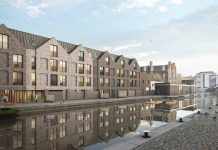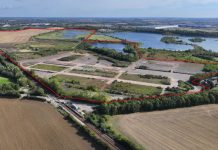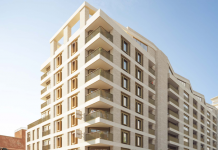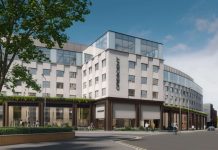Developments that combine residential, retail and business premises are becoming increasingly popular across the UK. Known as mixed-use developments, they are also attracting the attention of developers looking to maximise return and reduce market risks associated with single-use premises. But as Gemma Featonby, commercial property partner at leading commercial law firm Thrings, explains, developers need to be aware of hidden risks.
There are two primary risks with schemes involving long residential leases that could impact on a developer’s future plans and return on investment. The first is the right of first refusal, which obliges the developer to offer residential leaseholders the option of buying the freehold of the building on the same or more beneficial terms prior to its sale.
The second concerns collective enfranchisement, which grants residential leaseholders the right to come together and buy the freehold of the entire building at a premium. For many leaseholders the idea of owning a share in the freehold of a property is an attractive one. Many developers, on the other hand, are often less enthusiastic about selling the freehold if it impacts on their long-term plans or return for the scheme.
The course of action taken to potentially avoid these risks will depend on the developer’s plans for the scheme. For example, will the development be sold in its entirety after completion, or will the developer or an associated company retain the property (or part of it) in order to generate profit?
A developer creating a mixed-use development will usually intend to dispose of the freehold once all units have been sold. In this situation – and if the developer acts at the earliest possible opportunity – they may be able to create a subsidiary or acquire the site in the name of a single purchase company. The shares in that company, rather than the freehold of the building, could then be sold when the development is completed, which could also result in a stamp duty land tax saving.
Alternatively, in order to avoid rights of first refusal, the developer may grant a long lease to an associated company or a management company. This would result in any long leases being granted out of the overriding lease. The developer needs to be fairly close to completion before the rights of first refusal are triggered and so there is an opportunity to structure the development to try to prevent this from happening.
If the developer intends to sell leasehold flats off plan (where all or most of the flats will be subject to an agreement for lease) the contracted buyers will qualify for rights of first refusal and therefore, in due course, have the option of buying the freehold once the half-built block of flats could be legally described as a building. To avoid this, the developer should grant the overriding lease to a management company or associated company before the development reaches this stage.
If a purchaser has been identified at the outset to acquire the freehold following the completion of the building and the letting of the flats, the developer could enter into a contract with the purchaser or grant an option before the building contains any flats to avoid the transaction triggering the rights of first refusal.
Alternatively, the developer could ensure the building does not qualify under the relevant legislation for leaseholders to have the option of collectively buying the freehold. This would have to be done by arranging the internal floor areas of the development so that the commercially-occupied parts exceed the relevant thresholds. In this case, careful measurements need to be taken of the entire building by an expert surveyor. This is one of the only ways to avoid a collective enfranchisement claim (where the leaseholders together seek to acquire the freehold of a building by ensuring the building, or the tenants, do not qualify to exercise the rights at all).
All is therefore not lost for the developer who can seek to minimise – and potentially eradicate – these hidden risks if strategic advice is sought early on and ideally during the planning stages.























